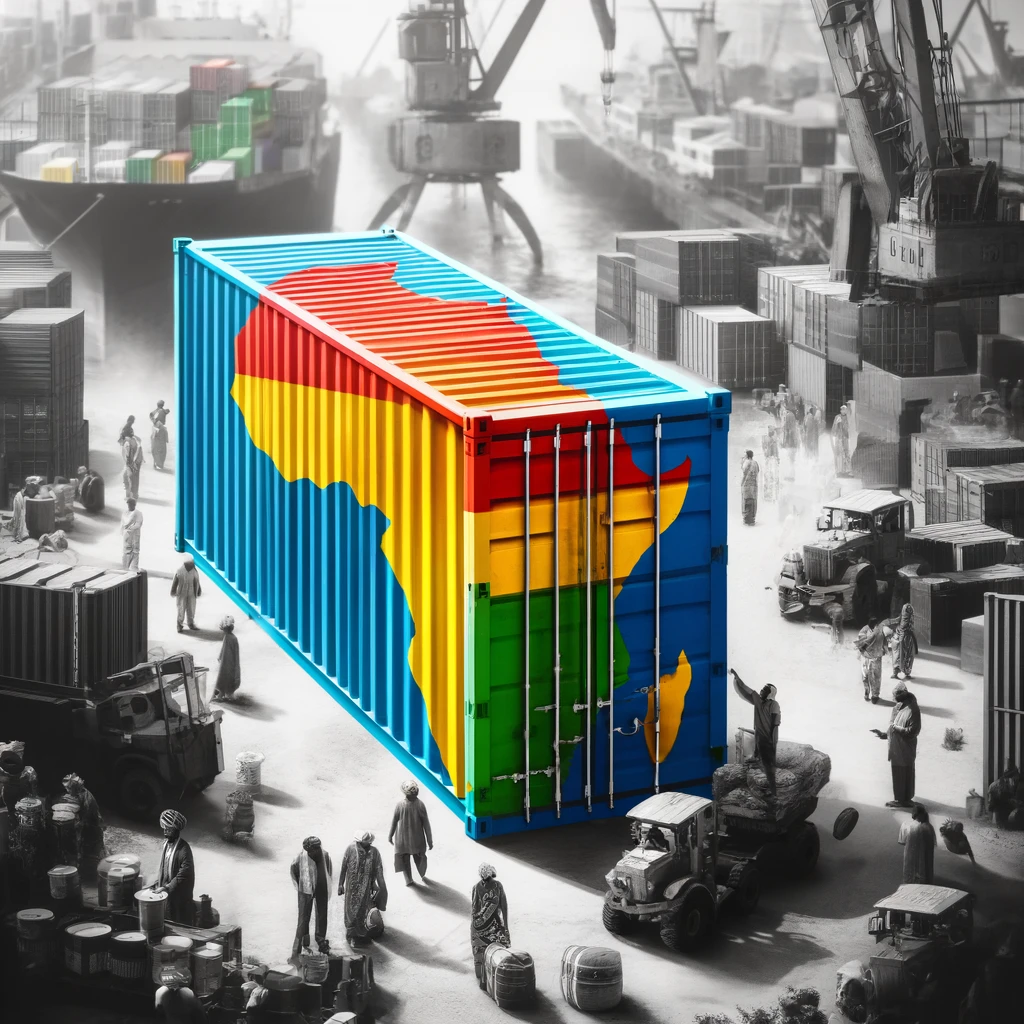
The election of the new Commonwealth Secretary-General will take place at the Commonwealth Heads of Government Meeting (CHOGM) in Samoa in October 2024, marking a significant decision for the future leadership and direction of the Commonwealth.
Current Candidates for Secretary-General
To date, these are the candidates:
Shirley Ayorkor Botchwey (Ghana)
Shirley Ayorkor Botchwey, Ghana’s Minister of Foreign Affairs and Regional Integration, is a prominent candidate for the position of Commonwealth Secretary-General. Her candidacy is strongly supported by the African Union and has garnered significant backing across various Commonwealth regions. Botchwey’s extensive experience in diplomacy and international relations makes her a formidable contender. She has been instrumental in promoting Ghana’s foreign policy, emphasizing sustainable development, economic growth, and regional security. Her vision for the Commonwealth includes enhancing trade, fostering investment, and advocating for climate resilience, reflecting her commitment to addressing global challenges and promoting equitable development among member states.
Dr. Mamadou Tangara (The Gambia)
Dr. Mamadou Tangara, The Gambia’s Minister of Foreign Affairs, is a distinguished candidate for the role of Commonwealth Secretary-General. Known for his strategic vision and deep commitment to human rights, Tangara played a pivotal role in The Gambia’s reintegration into the Commonwealth. His extensive diplomatic experience includes significant contributions to conflict resolution and international cooperation, positioning him as a leader capable of navigating complex global challenges. Tangara’s candidacy is reinforced by his dedication to promoting peace, democracy, and sustainable development within the Commonwealth, aligning with the organization’s core values and objectives.
Monica Juma (Kenya)
Monica Juma, Kenya’s Defence Minister, is a formidable candidate for the position of Commonwealth Secretary-General. Juma brings a wealth of experience in governance, security, and international diplomacy, having held various high-profile roles within the Kenyan government and international organizations. Her tenure as Kenya’s Defence Minister underscores her leadership in regional security and governance issues, positioning her as a unifying figure capable of addressing the diverse challenges facing the Commonwealth. Juma’s vision includes strengthening the Commonwealth’s role in promoting peace, security, and sustainable development, aligning with the organization’s core objectives of fostering cooperation and development among member states.
Senator Kamina Johnson Smith (Jamaica)
As Jamaica’s Minister of Foreign Affairs and Foreign Trade, Johnson Smith has been actively involved in regional and international diplomacy, holding key positions such as President of the Organisation of African, Caribbean, and Pacific States (OACPS) Council of Ministers and Chair of the CARICOM Council on Trade and Economic Development. Johnson Smith’s candidacy is backed by the United Kingdom and several other Commonwealth nations. She is recognized for her diplomatic acumen, leadership skills, and commitment to sustainable development and gender equality.
Joshua Setipa (Lesotho)
Joshua Setipa is a significant contender for the position due to his extensive experience and strategic leadership in international trade, economic policy, and public administration. Setipa has held high-ranking roles, including serving as the Minister of Trade and Industry in Lesotho and the Managing Director of the UN Technology Bank for Least Developed Countries. His current role as the Senior Director for Strategy, Portfolio, Partnerships, and Digital Division at the Commonwealth Secretariat underscores his deep understanding of the organization’s inner workings and his capability to lead complex global initiatives. His robust diplomatic skills and commitment to sustainable development, particularly for developing and least-developed countries, further bolster his candidacy, making him a well-rounded and highly qualified contender.
Potential Additional Candidates
The election process may see other candidates emerge, reflecting the diverse interests and regional alliances within the Commonwealth.
Time for Africa!
To date, there has only been one African Secretary-General, Chief Emeka Anyaoku (Nigeria). He served from 1990-2000. Chief Anyaoku served as the third Secretary-General of the Commonwealth. Before his tenure, he had a distinguished diplomatic career, including roles within the Commonwealth Secretariat and the Nigerian Foreign Service.
The upcoming election for the Commonwealth Secretary-General in October 2024 presents an opportune moment for the appointment of a candidate from Africa. Given the current global and regional dynamics, there are several compelling reasons why this could be an ideal time for such a decision.
Firstly, Africa constitutes a significant portion of the Commonwealth’s membership, with 21 out of the 56 member countries located on the continent. This demographic presence underscores the importance of African representation in the highest leadership position within the Commonwealth. An African Secretary-General would be well-placed to address the unique challenges and opportunities faced by these member states, ensuring that their voices are more effectively represented on the global stage.
Secondly, the Commonwealth faces numerous global challenges that resonate deeply within African nations, such as climate change, economic inequality, and the need for sustainable development. Candidates like Shirley Ayorkor Botchwey of Ghana have outlined ambitious plans to address these issues through initiatives like establishing a Commonwealth Free Trade Area and enhancing investment in education and infrastructure. Such strategic focuses are crucial for lifting developing member states to levels closer to those of developed nations within the Commonwealth, fostering greater economic resilience and growth.
Additionally, the principle of regional rotation in the Commonwealth Secretariat’s leadership underscores the fairness and inclusiveness of its governance. Africa has not held the position of Secretary-General since Chief Emeka Anyaoku of Nigeria, whose tenure ended in 2000. Given the significant contributions of African countries to the Commonwealth, this period marks a timely juncture for rotating leadership back to the continent. Such a move would reinforce the Commonwealth’s commitment to diversity and equitable representation.
Finally, an African Secretary-General could invigorate the Commonwealth’s relevance and appeal, particularly among the youth, who form a significant majority of the Commonwealth’s population. With 60% of the Commonwealth’s 2.5 billion people under the age of 30, a leader who understands and prioritizes the aspirations and challenges of African youth can help bridge the gap between the Commonwealth and its younger members. This is crucial for maintaining the organization’s vitality and ensuring its future relevance.
Appointing a Secretary-General from Africa at this time would not only honor the continent’s significant role within the Commonwealth but also address critical global issues with fresh perspectives and renewed vigor. It would exemplify the Commonwealth’s dedication to equitable representation and its responsiveness to the evolving needs of its diverse membership.
Role of the Commonwealth Secretary-General
The Commonwealth Secretary-General is the Chief Executive Officer of the Commonwealth Secretariat, the central organization that administers the work of the Commonwealth. This role involves:
- Leadership and Representation:
- The Secretary-General acts as the primary spokesperson and representative of the Commonwealth, advocating for its values and interests on the global stage.
- This includes engaging with heads of government and international organizations to promote peace, democracy, and sustainable development.
- Diplomacy and Mediation:
- The Secretary-General facilitates diplomatic initiatives and conflict resolution among member states. This role often involves discreet diplomacy and leveraging the Commonwealth’s collective influence to mediate disputes and foster dialogue.
- Administration and Coordination:
- Overseeing the day-to-day operations of the Commonwealth Secretariat, the Secretary-General ensures effective implementation of policies and programs across member states.
- This includes managing various departments focused on areas such as economic development, education, health, and climate change.
- Strategic Initiatives:
- The Secretary-General drives strategic initiatives aimed at addressing key global challenges like poverty, inequality, and climate change. They also work to enhance trade, investment, and cultural exchange among member countries.
Role of the Commonwealth in Today’s World
The Commonwealth is a political association of 56 member countries, most of which were former territories of the British Empire. Today, the Commonwealth plays a significant role in the international arena by:
- Promoting Democracy and Good Governance:
- The Commonwealth advocates for democratic practices, rule of law, and human rights within its member states. It deploys election observers to monitor electoral processes and ensure transparency and fairness.
- Fostering Economic Development:
- Through initiatives like the Commonwealth Fund for Technical Cooperation, the organization supports economic growth and development in member countries. This includes capacity-building, trade facilitation, and investment promotion.
- Advancing Education and Health:
- The Commonwealth prioritizes educational exchange and development, facilitating scholarships, and collaborative research among member states. It also addresses health challenges by coordinating responses to epidemics and promoting public health initiatives.
- Addressing Global Challenges:
- Climate change is a significant focus, with the Commonwealth advocating for environmental sustainability and resilience, particularly for small island developing states (SIDS) that are most vulnerable to climate impacts.
- It also works on issues such as gender equality, youth empowerment, and digital transformation, adapting to the evolving needs of its diverse membership.
Historical Context of the Commonwealth
The Commonwealth, originally formed in 1931, is an association of nations with a shared history and common values. It consists of 56 member countries that collaborate on various global issues, fostering a sense of community and mutual support.
Sources and References:
- Citi Newsroom
- Commonwealth Business Communications
- Demerara Waves Online News- Guyana
- MyJoyOnline
- Chatham House
- Ghana News Agency
- Office of the Prime Minister, Jamaica
- Commonwealth Secretariat
- Ghana Broadcasting Corporation
- The Point
- The Lesotho Times
- https://kmaupdates.com/2024/01/15/lesotho-fields-setipa-for-secretary-general-of-the-commonwealth/


